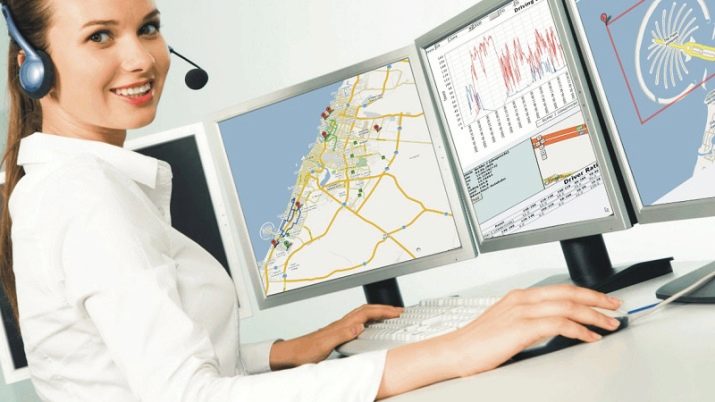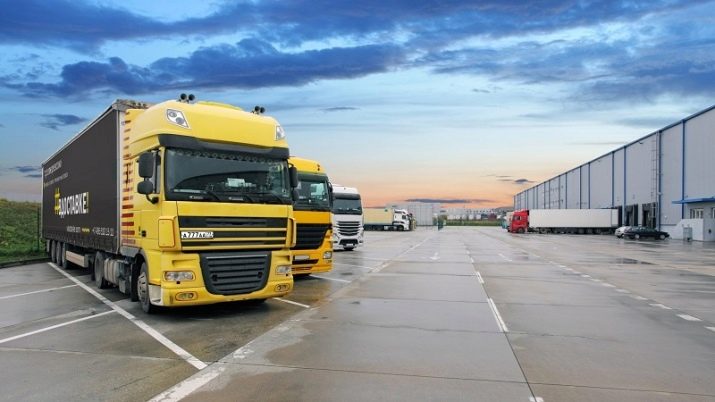Top professions in the specialty "Organization of transportation and transport management"

When choosing a profession, pay attention to the specialties related to the organization of transportation and transport management. If this direction is unfamiliar to you, we offer you to understand in more detail all its professional aspects.

Peculiarities
Work related to transportation includes a set of measures to organize the transportation of people and goods, as well as to ensure their safety. This is not an easy task. Tens and even hundreds of thousands of trains, boats and aircraft move along the land, water and air transport routes of our country every day. And even more people are involved in transportation and their organization.
Transport Management Specialists must establish uninterrupted traffic, eliminate any problems that arise along the way, draw up route schedules and do other logistics work. This requires exceptional knowledge and competence, and also entails a high degree of responsibility. An illiterate approach to work can lead to a disruption in the functioning of the transport network and even create life-threatening situations. The main task of such an employee is to create and maintain an integral transport system that will “work like a clock”. Another important area of the activity under consideration is the search for reserves to reduce the financial costs of moving goods and people.
In general, the work on the organization of transportation is divided by type.
- Technical specialties involve direct involvement in the transport process - these people sit behind the wheel, set up the transport belt, ensure the safe operation of the infrastructure, and in addition, maintain roads, that is, carry out their repair and construction.
- The activities of management personnel are associated with the solution of organizational problems and the coordination of technical workers. It involves a combination of theoretical planning and practical organization of transportation. The tasks of managers include: drawing up schedules and route sheets, maintaining documentation and concluding contracts.
In general, the job responsibilities of a transport manager include:
- organization of the cargo transportation process;
- organization of the process of passenger transportation;
- maintaining logistic documentation;
- maintenance of transport lines;
- vehicle maintenance;
- implementation of innovative solutions in the development of transport lines and maintenance of flows.

Professions
The professions associated with transport management include many specialties. Representatives of the technical direction usually get a job in one of the following positions:
- operators, dispatchers;
- drivers;
- traffic controllers;
- compilers of route sheets;
- forwarders;
- mechanics;
- station personnel;
- road workers.
One of the demanded areas in management is logistics. This activity includes planning the movement of transport resources, as well as the subsequent monitoring of their work. Besides, responsibilities include a number of other tasks: minimizing costs, reducing the period of stay of goods at intermediate storage bases, and passengers at stations. This person still selects transport, determines the route to follow, and also concludes contracts with transport companies.
He is also responsible for ensuring customs clearance of goods, renting warehouses and monitoring the vehicle's presence on the way.

Professional knowledge and qualities
The professional knowledge and competencies presented to the carriers directly depend on the area in which he plans to self-actualize.
Organizational and managerial activities require the ability to:
- organize safe traffic in transport;
- provide insurance against risks during transportation;
- to issue permits, expeditionary, commodity-transport and customs documentation;
- ensure the safe movement of heavy, bulky and perishable, as well as other specific cargo;
- plan and ensure the continuity of multimodal transport.
Engineering and operational activities require the ability to:
- maintain the safety of vehicles;
- introduce a system of technical regulation of the transport process;
- to support the operation of automated control systems.
Techno-economic activity requires the ability to:
- substantiate technical and economic requirements for vehicles;
- to seek out forms of their acquisition that are profitable for the enterprise (leasing, rent or purchase);
- select vehicles for cargo transportation.

Commercial and marketing activities require the ability to:
- monitor the transport services market, determine the specifics of the demand for cargo transportation;
- conduct commercial operations, including negotiating, concluding contracts, submitting applications for participation in competitions and tenders;
- evaluate the effectiveness of any innovations related to transport services, taking into account the market conditions.
Research and development and consulting activities require the ability to:
- to draw up design technological schemes for the transportation of passengers and cargo;
- ensure the maintenance of the functionality of information systems for transport management;
- to simulate transport and technological schemes;
- make forecasts for the development of transport systems at the local and regional levels.
Important! There are a number of medical restrictions for technical workers:
- diseases of the musculoskeletal system;
- impaired coordination of movements;
- nervous and mental disorders;
- pronounced pathologies of hearing and vision.

Where can you work?
Young professionals who have received a diploma in specialization related to with transport control, quite wide opportunities open up... They can start their own business or find employment in private companies. Transportation specialists often find a place in existing companies, including such large ones as Russian Railways, airlines or large logistics networks. These enterprises have an impeccable reputation, they provide their employees with loyal working conditions and a decent salary.
A transportation technician can find a job:
- to leasing companies;
- service companies;
- in transport and technological enterprises;
- in the field of information services for transport and logistics systems;
- to marketing departments for the study and maintenance of the transport services segment;
- in the organization for the transportation of goods and people.
Each locality has its own transportation network, which requires adjustment and maintenance: route taxis, railway and bus stations. This indicates that specialists in the organization of transportation are required everywhere, so every specialist has the opportunity to find a job.
Today, positions related to the organization of transport work are relevant and, according to experts, will be in demand on the labor market for a long time.









